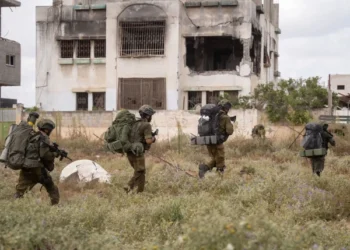Riyadh, Saudi Arabia – Crown Prince Mohammed bin Salman has officially launched Saudi Arabia’s annual national blood donation campaign by personally donating blood, setting a powerful example of humanitarian leadership. The initiative underscores the Kingdom’s growing emphasis on promoting a culture of voluntary blood donation, strengthening national healthcare infrastructure, and ensuring sustainable supplies of life-saving blood for patients across the country.
A Royal Gesture with National Impact
The symbolic act of the Crown Prince donating blood goes far beyond a routine gesture. It highlights the importance of leadership by example in inspiring society to participate in causes that directly save lives. By initiating the campaign in this manner, Prince Mohammed bin Salman has reinforced the values of compassion, responsibility, and civic duty within the Kingdom.
According to the Saudi Press Agency (SPA), the annual campaign reflects the Crown Prince’s consistent efforts to promote humanitarian values, community engagement, and social solidarity, while also advancing public health goals.
Objectives of the National Blood Donation Campaign
The campaign’s primary goal is to ensure that Saudi Arabia maintains a safe, sustainable, and self-sufficient supply of blood and blood products. These supplies are essential for medical treatments such as surgeries, trauma care, cancer therapies, and childbirth complications.
Key objectives include:
- Promoting a culture of voluntary blood donation among citizens and residents.
- Reducing reliance on emergency appeals by building a reliable reserve of blood supplies.
- Ensuring self-sufficiency so that Saudi Arabia does not have to depend on external sources.
- Improving healthcare outcomes for patients requiring transfusions.
Healthcare officials emphasize that voluntary donations provide the safest and most consistent source of blood, compared to replacement donations, which often come only in emergencies.
Blood Donation in Saudi Arabia: Current Progress
In 2024 alone, more than 800,000 people across the Kingdom donated blood through hospitals, mobile donation units, and national drives. This represents significant progress compared to previous years and reflects the growing awareness among the Saudi population about the importance of voluntary contribution.
Officials believe that with the support of initiatives led by the Crown Prince, Saudi Arabia is well on its way to becoming completely self-sufficient in blood supply in the near future. This would place the Kingdom among leading nations in healthcare preparedness and resilience.
Crown Prince’s Commitment to Humanitarian and Health Initiatives
This campaign is not an isolated initiative. Over the years, Crown Prince Mohammed bin Salman has been directly involved in numerous healthcare, humanitarian, and social development programs, reflecting his broader vision for the Kingdom under Saudi Vision 2030.
Some notable contributions include:
- Supporting health awareness campaigns for chronic diseases and preventive care.
- Expanding healthcare infrastructure under Vision 2030 reforms.
- Promoting mental health and wellness programs for Saudi citizens.
- Encouraging youth and volunteer participation in charitable and social initiatives.
His decision to personally donate blood demonstrates a hands-on approach to leadership, emphasizing that social responsibility begins at the top.
The Importance of Blood Donation: A Lifesaving Act
Blood donation is universally recognized as one of the most direct and meaningful contributions a person can make to society. According to the World Health Organization (WHO):
- Every two seconds, someone in the world requires a blood transfusion.
- Blood donations are essential in treating conditions such as severe anemia, cancer, and trauma injuries.
- Women facing complications during pregnancy or childbirth often require urgent transfusions to save their lives.
Saudi Arabia’s campaign therefore aligns with global health priorities, while also ensuring that the Kingdom is equipped to handle both routine medical needs and emergency situations.
Encouraging Citizens and Residents to Participate
The campaign is designed to inspire all citizens and residents of Saudi Arabia, regardless of background, to participate in voluntary blood donation. Government ministries, universities, private organizations, and civil society groups have been urged to organize blood drives as part of the nationwide effort.
The slogan of the campaign emphasizes that “Every drop counts”, reminding donors that their simple act can save multiple lives. Health experts note that a single unit of blood can often be separated into components such as red cells, plasma, and platelets—benefiting several patients at once.
Public Response and Growing Culture of Volunteerism
The Crown Prince’s blood donation has been widely praised across social media platforms, sparking a wave of positive responses from the public. Citizens and residents have expressed their readiness to follow the Crown Prince’s example, with many hospitals and donation centers already reporting increased participation.
Observers note that the campaign is helping to nurture a culture of volunteerism in Saudi society, which aligns with the Vision 2030 goal of fostering civic engagement and social responsibility.
Saudi Vision 2030 and Healthcare Transformation
Saudi Arabia’s Vision 2030 includes healthcare transformation as one of its major pillars. By modernizing hospitals, adopting cutting-edge technology, and emphasizing preventive care, the Kingdom aims to become a regional leader in healthcare excellence.
The blood donation campaign directly supports these reforms by:
- Ensuring that national healthcare facilities remain well-equipped.
- Building community trust in public health programs.
- Creating a model of sustainable medical practices.
With a young and growing population, Saudi Arabia’s efforts to secure its healthcare future are both timely and essential.
The Role of Technology and Innovation
Another important dimension of the campaign is the integration of digital platforms to facilitate the donation process. Mobile applications and online registration systems allow potential donors to easily schedule appointments, track their donation history, and receive reminders about upcoming drives.
The Ministry of Health has also introduced awareness campaigns through digital media, targeting young people in particular, who make up a large portion of the donor base. By blending tradition with technology, Saudi Arabia is modernizing its approach to healthcare engagement.
Looking Ahead: Building a Self-Sufficient System
Officials are optimistic that within a few years, Saudi Arabia will be able to achieve complete self-sufficiency in blood supply. This means that hospitals and medical centers will always have adequate reserves, ensuring timely treatment for patients in need.
Achieving this goal requires:
- Sustained public participation in blood donation campaigns.
- Expansion of donation centers and mobile units across all regions.
- Collaboration with private and charitable organizations to organize drives.
- Continued leadership support, as demonstrated by the Crown Prince.
If these efforts continue, Saudi Arabia could soon serve as a regional role model in healthcare self-sufficiency and humanitarian leadership.
Conclusion: A Humanitarian Example for the Nation
The launch of Saudi Arabia’s annual national blood donation campaign by Crown Prince Mohammed bin Salman marks a historic and inspirational moment for the Kingdom. By personally donating blood, the Crown Prince has set a powerful precedent, motivating citizens and residents to embrace the culture of voluntary blood donation.
With more than 800,000 donations already recorded in 2024, and with a vision of achieving full self-sufficiency in blood reserves, Saudi Arabia is taking significant steps toward strengthening its healthcare system and saving countless lives.
This initiative not only enhances the country’s medical readiness but also embodies the spirit of solidarity, compassion, and humanitarian leadership that defines Saudi society today.

























